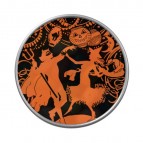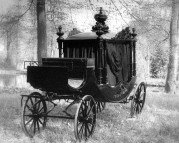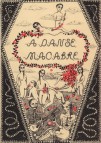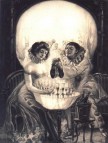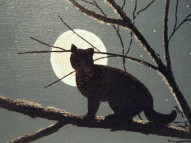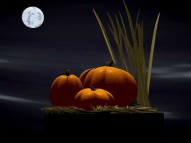At The Devil's Ball (Berlin) (Holidays/Halloween)
Early (1912) ragtime syncopation penned for the vaudeville stage & Tin Pan Alley consumption by Irving Berlin(1888-1989). The Black band leader character "Ephraham" appears here as he does frequently in early Berlin songs, a tribute to the stunning impact on Popular American Song shared by both Jews and Blacks.
Creepy Victorian Halloween, A (Halloween)
The Victorian preoccupation with the supernatural, the occult and the afterlife still exerts a fascination on even the most jaded modern sensibility. Much of this was rooted in a firm belief in an afterlife...either in heaven...or in hell. It was hoped that somehow one could communicate with the dead. Are we any different, judging by our deathless passion for the mysteries of Halloween?The musical setting is original to the site.
Danse Macabre (Saint-Saens) (Halloween)
1874 tone poem by French composer Camille Saint-Saens(1835-1921). Inspired by the legend of Death inviting the Departed from their graves to dance until dawn on Halloween night.
Funeral March Of A Marionette (Gounod) (Halloween)
Piano solo(1872), then orchestral piece(1879) by French composer Charles Gounod(1818-1893), known best by modern audiences as the theme to the television program "Alfred Hitchcock Presents." Selected by Hitchcock himself as one of the pieces of music he would take with him to the proverbial desert island.
Moonlight Sonata (Beethoven) (Halloween)
Piano Sonata #14, C-sharp minor(1801) by Ludwig van Beethoven(1770-1827). Said to have gotten its famous nickname from a comment by the German poet Rellstab, made years after Beethoven's death, likening the mood of the sonata's first movement to moonlight on Lake Lucerne.

